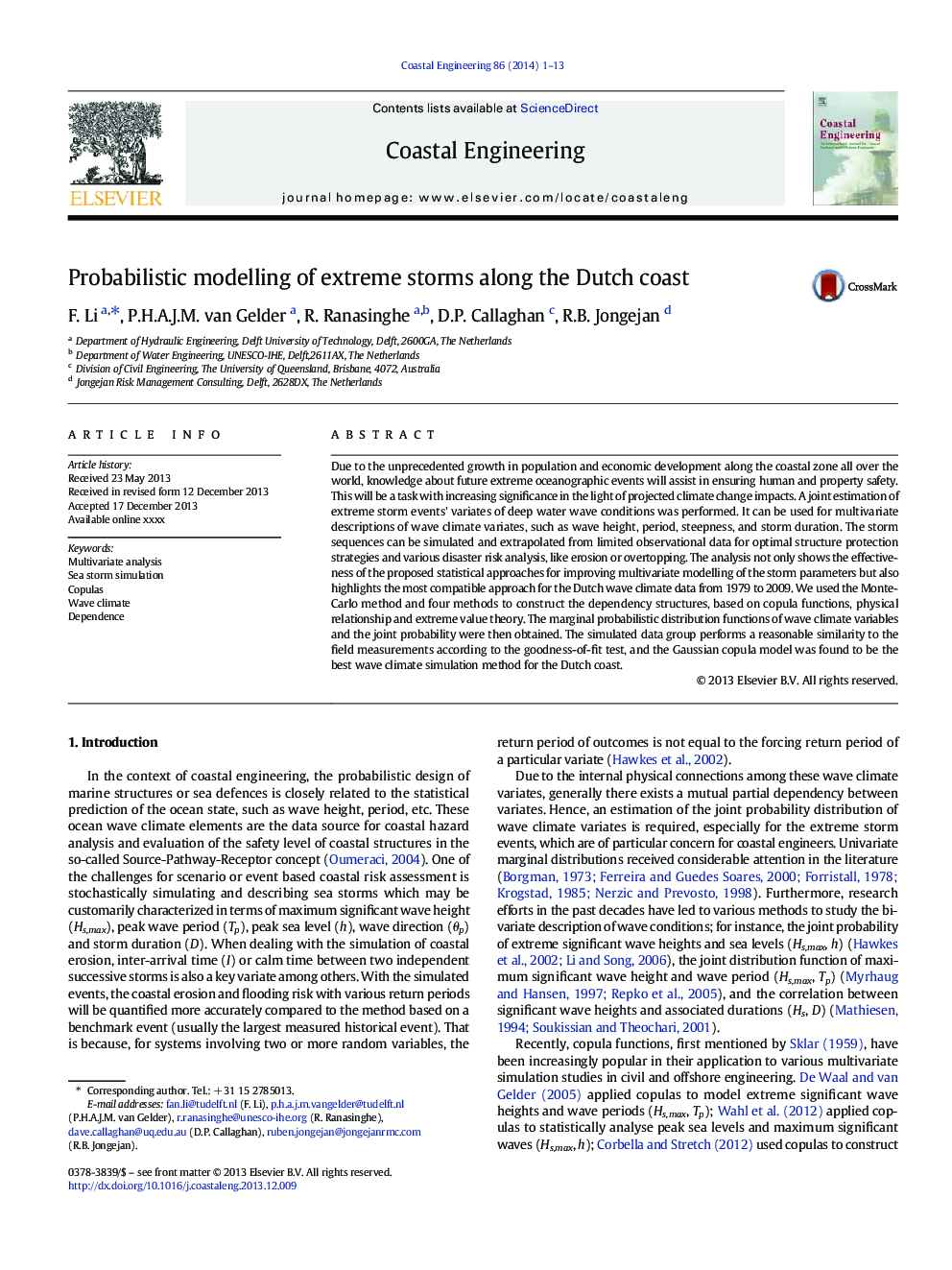| Article ID | Journal | Published Year | Pages | File Type |
|---|---|---|---|---|
| 8059843 | Coastal Engineering | 2014 | 13 Pages |
Abstract
Due to the unprecedented growth in population and economic development along the coastal zone all over the world, knowledge about future extreme oceanographic events will assist in ensuring human and property safety. This will be a task with increasing significance in the light of projected climate change impacts. A joint estimation of extreme storm events' variates of deep water wave conditions was performed. It can be used for multivariate descriptions of wave climate variates, such as wave height, period, steepness, and storm duration. The storm sequences can be simulated and extrapolated from limited observational data for optimal structure protection strategies and various disaster risk analysis, like erosion or overtopping. The analysis not only shows the effectiveness of the proposed statistical approaches for improving multivariate modelling of the storm parameters but also highlights the most compatible approach for the Dutch wave climate data from 1979 to 2009. We used the Monte-Carlo method and four methods to construct the dependency structures, based on copula functions, physical relationship and extreme value theory. The marginal probabilistic distribution functions of wave climate variables and the joint probability were then obtained. The simulated data group performs a reasonable similarity to the field measurements according to the goodness-of-fit test, and the Gaussian copula model was found to be the best wave climate simulation method for the Dutch coast.
Related Topics
Physical Sciences and Engineering
Engineering
Ocean Engineering
Authors
F. Li, P.H.A.J.M. van Gelder, R. Ranasinghe, D.P. Callaghan, R.B. Jongejan,
